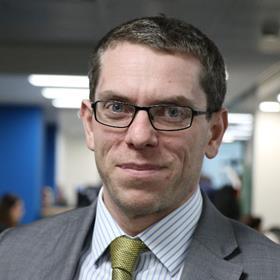£8.5m of new research funding for AI safety testing
Michelle Donelan, Technology Secretary, has announced that the government will offer £8.5 million grants to researchers to study how to protect society from AI risks such as deepfakes and cyberattacks, as well as helping to harness its benefits, such as increased productivity.
The most promising proposals will be developed into longer-term projects and could receive further funding.
The programme will be led within the UK government’s pioneering AI Safety Institute by Shahar Avin, an AI safety researcher who will be joining the UK’s Institute on secondment and Christopher Summerfield, UK AI Safety Institute Research Director.
 "This new programme of grants is a major step towards ensuring that AI is deployed safely into society," said Summerfield. "We need to think carefully about how to adapt our infrastructure and systems for a new world in which AI is embedded in everything we do. This programme is designed to generate a huge body of ideas for how to tackle this problem, and to help make sure great ideas can be put into practice."
"This new programme of grants is a major step towards ensuring that AI is deployed safely into society," said Summerfield. "We need to think carefully about how to adapt our infrastructure and systems for a new world in which AI is embedded in everything we do. This programme is designed to generate a huge body of ideas for how to tackle this problem, and to help make sure great ideas can be put into practice."
The research programme will be delivered in partnership with UK Research and Innovation and The Alan Turing Institute and the UK AI Safety Institute will aim to collaborate with other AI Safety Institutes internationally. Applicants will need to be based in the UK but will be encouraged to collaborate with other researchers from around the world.
Earlier this week, the AI Safety Institute released its first set of public results from tests of AI models.
The new grants programme is designed to broaden the Institute’s remit to include the emerging field of ‘systemic AI safety’, which aims to understand how to mitigate the impacts of AI at a societal level and study how our institutions, systems and infrastructure can adapt to the transformations this technology has brought about.
Examples of proposals within scope would include ideas on how to curb the spread of fake images and misinformation by intervening on the platforms that spread them, rather than on the AI models that generate them.
The AISI Systemic Safety programme aims to attract proposals from a broad range of researchers across both the public and private sectors, who will work closely with the UK government to ensure their ideas have maximum impact.
It will run alongside the Institute’s evaluation and testing of AI Models, where the Institute will continue to work with AI labs to set standards for development and help steer AI towards having positive impact.
The AI Seoul Summit builds on the inaugural AI Safety Summit hosted by the United Kingdom at Bletchley Park in November last year and is one the largest ever gathering of nations, companies and civil society on AI. "The AI Safety Institute’s work is vital for understanding AI risks and creating solutions to maximise the societal and economic value of AI for all citizens," said Professor Dame Ottoline Leyser, UKRI Chief Executive. "UKRI is delighted to be working closely with the Institute on this new programme to ensure that institutions, systems and infrastructures across the UK can benefit safely from AI."
"The AI Safety Institute’s work is vital for understanding AI risks and creating solutions to maximise the societal and economic value of AI for all citizens," said Professor Dame Ottoline Leyser, UKRI Chief Executive. "UKRI is delighted to be working closely with the Institute on this new programme to ensure that institutions, systems and infrastructures across the UK can benefit safely from AI."
This programme leverages the UK’s world-leading AI expertise, and UKRI’s AI investment portfolio encompassing skills, research, infrastructure and innovation, to ensure effective governance of AI deployment across society and the economy.
The programme will bring safety research right into the heart of government, underpinning the pro-innovation regulation that will shape the UKs digital future. Professor Helen Margetts, director of public policy at The Alan Turing Institute, said:
Professor Helen Margetts, director of public policy at The Alan Turing Institute, said:
"We’re delighted to be part of this important initiative which we hope will have a significant impact on the UK’s ability to tackle threats from AI technology and keep people safe. Rapidly advancing technology is bringing profound changes to the information environment, shaping our social, economic and democratic interactions. That is why funding AI safety is vital – to ensure we are all protected from the potential risks of misuse while maximising the benefits of AI for a positive impact on society."






